এটি হচ্ছে Insight Hour সিরিজের প্রথম সেশন—বিজ্ঞানী অর্গ-এর একটি বিশেষ উদ্যোগ। এই সিরিজে আমরা বিভিন্ন ক্ষেত্রের বিশেষজ্ঞদের সাথে এক ঘণ্টার আলোচনা করব, যেখানে তারা শেয়ার করবেন তাদের ক্যারিয়ার জার্নি, অভিজ্ঞতা এবং নেতৃত্বের মূলমন্ত্র।
এই প্রথম সেশনে থাকছেন এম এস হোসেন, যিনি তার অভিজ্ঞতায় তুলে ধরবেন শিল্প কারখানার প্ল্যান্ট ফ্লোর থেকে নেতৃত্বে পৌঁছানোর অনুপ্রেরণাদায়ক গল্প।
নোয়াখালী, বাংলাদেশ এর ছোট্ট এক গ্রামে বেড়ে ওঠা এক কিশোরের স্বপ্ন ছিল একটু আলাদা—বিজ্ঞানের জগৎ, যন্ত্রপাতি আর বিদ্যুতের রহস্য তাকে অল্প বয়স থেকেই টানত। শৈশব থেকেই তিনি ছিলেন কৌতূহলী, আশপাশের ভাঙা রেডিও, পাখার মোটর কিংবা বৈদ্যুতিক সরঞ্জাম হাতে নিয়ে খুটিনাটি বুঝতে চাইতেন। এই কৌতূহলই পরবর্তীতে তাকে নিয়ে যায় প্রকৌশলের জগতে।
নর্থ সাউথ ইউনিভার্সিটি, ঢাকা, বাংলাদেশথেকে ইলেকট্রিক্যাল অ্যান্ড ইন্সট্রুমেন্টেশন ইঞ্জিনিয়ারিং-এ স্নাতক ডিগ্রি শেষ করার পর শুরু হয় দীর্ঘ কর্মজীবনের পথচলা। তবুও এখানেই থেমে থাকেননি। উচ্চশিক্ষার প্রতি গভীর আগ্রহ থেকে অস্ট্রেলিয়ায় থেকে সম্পন্ন করেন অ্যাডভান্সড ডিপ্লোমা ইন ইলেক্ট্রিক্যাল এন্ড ইন্সট্রমেন্টেশন ইঞ্জিনিয়ারিং । পরে আবার গবেষণার তাগিদে যুক্তরাষ্ট্রে পাড়ি জমান, যেখানে তিনি ইন্ডাস্ট্রিয়াল অ্যান্ড সিস্টেম ইঞ্জিনিয়ারিং-এ মাস্টার্স শেষ করেন এবং বর্তমানে পিএইচডি গবেষণায় নিয়োজিত আছেন।
প্রথম চাকরি ও নতুন জগতের সঙ্গে পরিচয়
পড়াশোনা শেষে প্রথম সুযোগ আসে বহুজাতিক প্রতিষ্ঠান শেভরনে। এখানে প্রবেশ করেই তিনি বুঝতে পারেন, পাঠ্যবইয়ের ইঞ্জিনিয়ারিং আর বাস্তব জীবনের শিল্প-প্রকৌশল একেবারেই আলাদা। হাতে-কলমে কাজ, ঝুঁকি, দলগত সমন্বয়—সবকিছুই ছিল নতুন অভিজ্ঞতা।
তেল-গ্যাস শিল্পের কাজের ধরন ছিল প্রচণ্ড চাপপূর্ণ। একেকটি প্রকল্পের সঙ্গে জড়িয়ে থাকত বিদ্যুৎকেন্দ্র, সার কারখানা, এমনকি সাধারণ মানুষের দৈনন্দিন গ্যাস ব্যবহারও। অর্থাৎ, এক মুহূর্তের বিলম্ব মানে হাজার হাজার মানুষের জীবনে প্রভাব। এই দায়িত্ববোধ তাকে শুরু থেকেই ভিন্নভাবে ভাবতে শিখিয়েছিল।
তিনি স্মরণ করেন প্রথম বড় চ্যালেঞ্জ—একটি পূর্ণ প্ল্যান্ট শাটডাউন। প্রায় পাঁচশ’ মানুষের সমন্বয়ে মাত্র এক সপ্তাহে একশ’রও বেশি জটিল কাজ সম্পন্ন করতে হয়েছিল। ডেডলাইনের চাপ, ঝুঁকিপূর্ণ পরিবেশ, এবং হাজারো সমস্যার মাঝেও নেতৃত্ব দিয়ে দলকে এগিয়ে নেওয়ার অভিজ্ঞতা তাকে আত্মবিশ্বাসী করে তোলে। পরে তিনি বলেন, “চ্যালেঞ্জ সবসময় থাকবে। চ্যালেঞ্জ না থাকলে আমরা এগোতে পারব না।”
নেতৃত্বের দর্শন: কাজের মাধ্যমে প্রভাব বিস্তার
হোসেনের কাছে নেতৃত্ব কোনো পদবী নয়। তার ভাষায়, “Leadership is about influencing others and leading by example.” তিনি বিশ্বাস করেন, নেতা মানে সেই মানুষ, যিনি নিজের কাজের মাধ্যমে প্রমাণ করেন, দলে থাকা প্রত্যেক সদস্যকে তিনি বুঝেন এবং তাদের জন্য পাশে থাকেন।
তার নেতৃত্বের দর্শন খুব সহজ—প্রত্যেক সহকর্মীর শক্তি ও দুর্বলতা বোঝা, তাদের দক্ষতা অনুযায়ী কাজ ভাগ করে দেওয়া, এবং দুর্বলতা কাটিয়ে ওঠার জন্য দীর্ঘমেয়াদী পরিকল্পনা তৈরি করা। এর ফলে দলের সদস্যরা শুধু আত্মবিশ্বাসীই হয় না, বরং অনুভব করে যে তাদের ব্যক্তিগত উন্নতিও গুরুত্ব পাচ্ছে।
তিনি বলেন, “মানুষ আসলে যতক্ষণ না বুঝতে পারে আপনি তাদের প্রতি সত্যিকারের যত্নবান, ততক্ষণ আপনার জ্ঞান তারা মূল্যায়ন করবে না।”
প্রযুক্তিগত পরিবর্তন: অটোমেশন থেকে এআই
কর্মজীবনের দুই দশক জুড়ে তিনি শিল্পের অভাবনীয় পরিবর্তনের সাক্ষী। একসময় যেখানে প্রকৌশলীদের প্রতিদিন মাঠে গিয়ে যন্ত্রপাতির রিডিং নিতে হতো, এখন অটোমেশন সিস্টেমের মাধ্যমে সব তথ্য চলে আসে কন্ট্রোল রুমে। কৃত্রিম বুদ্ধিমত্তা (AI) ও ইন্টারনেট অফ থিংস (IoT) প্রযুক্তি আগেভাগেই সতর্ক করে দেয় যন্ত্রপাতি নষ্ট হওয়ার সম্ভাবনা।
তিনি ব্যাখ্যা করেন, আগে কোনো যন্ত্র নষ্ট হলে পুরো উৎপাদন বন্ধ হয়ে যেত, ব্যয় হতো কোটি কোটি টাকা। এখন প্রযুক্তির কারণে কয়েক মাস আগেই সংকেত পাওয়া যায়। এতে সময়মতো ব্যবস্থা নেওয়া যায় এবং বড় ধরনের ক্ষতি এড়ানো সম্ভব।
তবে প্রযুক্তির সঙ্গে আসে আরেকটি চ্যালেঞ্জ—মানসিকতা। অনেকেই নতুন প্রযুক্তি গ্রহণে অনাগ্রহী। তারা মনে করে, অটোমেশন মানে চাকরি হারানো। হোসেনের মতে, প্রযুক্তি আসলে প্রতিস্থাপন নয়; এটি মানুষের কাজকে আরও সহজ, দ্রুত ও দক্ষ করে তোলে। উদাহরণ টেনে বলেন, “কোডাক আর নকিয়া যদি সময়মতো পরিবর্তন গ্রহণ করত, তাহলে হয়তো ইতিহাস অন্যরকম হতো।”
বাংলাদেশ বনাম যুক্তরাষ্ট্র: অভিজ্ঞতার ভিন্নতা
বাংলাদেশে কাজ করার অভিজ্ঞতা আর যুক্তরাষ্ট্রে কাজ করার অভিজ্ঞতা যেন দুই ভিন্ন জগত। যুক্তরাষ্ট্রে সর্বাধুনিক প্রযুক্তি, সফটওয়্যার, ডিজিটাল টুইন ও মেশিন লার্নিং ব্যবহৃত হয় প্রতিদিন। তিনি জানান, যুক্তরাষ্ট্রে তার একেকটি প্রকল্পে বিশটিরও বেশি সফটওয়্যার ব্যবহার হয়, যেখানে বাংলাদেশে সর্বোচ্চ পাঁচটি সফটওয়্যার ব্যবহৃত হতো।
তবু তিনি বিশ্বাস করেন, বাংলাদেশের প্রকৌশলীরা মানের দিক থেকে কোনো অংশে কম নন। বরং অনেক সময় দক্ষতা ও পরিশ্রমের দিক থেকে তারা এগিয়ে। সমস্যা কেবল দিকনির্দেশনা ও প্রশিক্ষণের সীমাবদ্ধতায়। তার মতে, “আমাদের দেশে স্কোপ সীমিত, কিন্তু যারা দক্ষ তারা বিদেশে গিয়ে চমৎকার করছে।”
নারী প্রকৌশলীদের অংশগ্রহণ
এনার্জি সেক্টরের ঝুঁকিপূর্ণ পরিবেশে নারী প্রকৌশলীরা পিছিয়ে থাকবেন—এই ধারণা হোসেন একেবারেই মানেন না। যুক্তরাষ্ট্রে তিনি বহু নারী সহকর্মীর সঙ্গে কাজ করেছেন, যারা নেতৃত্ব, প্রসেস সেফটি, এমনকি ফিল্ডে গিয়েও দুর্দান্ত কাজ করেছেন।
বাংলাদেশেও একই অভিজ্ঞতা—হার্ড হ্যাট, সেফটি বুট পরে সমানতালে কাজ করেছেন নারীরা। তার মতে, মূল চ্যালেঞ্জ মানসিকতার। যদি নারী প্রকৌশলীরা আত্মবিশ্বাসী হন এবং প্রয়োজনীয় দক্ষতা অর্জন করেন, তবে এ খাতে তাদের জন্য অসংখ্য সম্ভাবনা রয়েছে।
শাটডাউন ম্যানেজমেন্ট: শান্ত থাকা শেখা
শিল্পে সবচেয়ে কঠিন অভিজ্ঞতার একটি হলো আকস্মিক প্ল্যান্ট শাটডাউন। উৎপাদন বন্ধ মানে কোটি কোটি টাকার ক্ষতি এবং প্রবল চাপ। কিন্তু হোসেন ভিন্নভাবে পরিস্থিতি সামলান। তিনি বলেন, “আমি প্রথমেই টিমকে বলি—প্যানিক করো না। শাটডাউন প্রক্রিয়ার অংশ। ঠান্ডা মাথায় ধাপে ধাপে সমস্যার উৎস খুঁজে বের করো।”
এই মনোভাবই তাকে এবং তার টিমকে অনেক বড় দুর্ঘটনা থেকে বাঁচিয়েছে। তিনি বিশ্বাস করেন, আতঙ্ক নয়, কৌশলগত ধৈর্যই সঙ্কট সামলানোর মূল চাবিকাঠি।
শেখার আগ্রহ: আজীবনের মূলমন্ত্র
পনেরো বছরেরও বেশি সময় বাংলাদেশে কাজ করার পর যুক্তরাষ্ট্রে উচ্চশিক্ষার জন্য আসেন তিনি। তার মতে, শেখার ইচ্ছাই একজন মানুষকে এগিয়ে নেয়। যুক্তরাষ্ট্রে এসে তিনি নতুন প্রযুক্তি, নতুন টুলস ও গবেষণার অভিজ্ঞতা অর্জন করেছেন। এমনকি এখনো তিনি নিজেকে নিয়মিত আপডেট রাখেন বিভিন্ন কোর্স, সার্টিফিকেশন এবং গবেষণার মাধ্যমে।
তিনি বলেন, “আমি জানি, সব স্কিল আমার লাগবে না। কিন্তু অন্তত দুই-তিনটি ক্ষেত্রে আমাকে মাস্টার হতে হবে। আর বাকিগুলোতে স্মার্টলি শেখা দরকার।”
তরুণদের জন্য বার্তা
নতুন প্রজন্মের জন্য তার পরামর্শ সরল কিন্তু শক্তিশালী—
১. শুধু কঠোর পরিশ্রম নয়, স্মার্টলি কাজ করতে শিখো।
২. অন্যের ভুল থেকে শিক্ষা নাও, যাতে একই ভুল পুনরাবৃত্তি না হয়।
৩. প্রযুক্তি ভয় পেয়ো না, বরং এটিকে কাজে লাগাও।
৪. নিজের প্যাশনকে অনুসরণ করো, এবং অন্তত কয়েকটি ক্ষেত্রে দক্ষতার শীর্ষে পৌঁছাও।
এছাড়া তিনি মেন্টরিং-এর গুরুত্বও জোর দিয়ে বলেন। শিক্ষার্থীদের উচিত শিক্ষকদের ও অ্যালামনাইদের সঙ্গে সম্পর্ক গড়ে তোলা, যাতে সঠিক সময়ে সঠিক দিকনির্দেশনা পাওয়া যায়। তার মতে, “বাংলাদেশের বিশ্ববিদ্যালয়গুলোতে ক্যারিয়ার ডেভেলপমেন্ট সেলকে আরও কার্যকর হতে হবে। তরুণরা নিজেরাই এগিয়ে আসুক, অপেক্ষা না করে।”
উপসংহার
এম এস হোসেনের গল্প কেবল একজন মানুষের সাফল্যের কাহিনি নয়; এটি বাংলাদেশের তরুণদের জন্য প্রেরণার উৎস। নোয়াখালীর সাধারণ এক গ্রাম থেকে শুরু করে আন্তর্জাতিক এনার্জি সেক্টরের নেতৃত্ব—এই যাত্রা আমাদের শেখায়, সীমাবদ্ধতা থাকলেও অধ্যবসায়, শেখার ইচ্ছা এবং নেতৃত্বের মানসিকতা থাকলে কিছুই অসম্ভব নয়।
তার কথায়, “Leadership is not a title, it is influence. Influence comes only when you care for your people and work from the front.”
আজকের তরুণদের জন্য এই বার্তা নিঃসন্দেহে পথপ্রদর্শক—নিজেকে উন্নত করো, প্রযুক্তিকে আপন করে নাও, এবং কাজের মাধ্যমে অন্যকে অনুপ্রাণিত করো। এভাবেই একদিন তোমরাও হয়ে উঠতে পারো বাংলাদেশের গর্ব, বিশ্বের মঞ্চে উজ্জ্বল নক্ষত্রের মতো।
Insight Hour এ তার বক্তব্যটি পুরোটা দেখুন: www.youtube.com
From the Plant Floor to Leadership: The Story of M S Hossen
This was the very first session of the Insight Hour series—an initiative by biggani.org. In this series, we bring together experts from different fields for an hour-long conversation where they share their career journeys, experiences, and lessons on leadership.
For our opening session, we had M S Hossen, who shared his inspiring story of how he rose from the plant floor of industrial factories to positions of leadership in the global energy sector.
Childhood Dreams and the Spark of Curiosity
Hossen grew up in a small village in Noakhali, Bangladesh. Unlike many children around him, his dreams were different—he was drawn to the mysteries of science, machines, and electricity. From an early age, he was endlessly curious, tinkering with broken radios, fan motors, and electrical appliances just to see how they worked. That curiosity eventually led him into the world of engineering.
After completing his bachelor’s degree in Electrical and Instrumentation Engineering from North South University at Dhaka Bangladesh, his professional journey began. But he didn’t stop there. His passion for higher education took him to Australia, where he completed an advanced diploma in Electrical and Instrumentation Engineering, and later to the United States, where he earned a Master’s degree in Industrial and Systems Engineering. Today, he is pursuing a PhD while continuing his professional career.
First Job and a New World
His career started at the multinational company Chevron. Very quickly, he realized that engineering in textbooks and engineering in the real world are worlds apart. The work was hands-on, risky, and required intense teamwork—an entirely new experience for a young engineer.
The oil and gas industry was full of pressure. Each project was directly linked to power plants, fertilizer factories, and even the daily gas needs of ordinary households. A single delay could impact thousands of lives. That sense of responsibility shaped the way he approached work from the very beginning.
He recalls his first major challenge—a full plant shutdown. Coordinating nearly 500 people, completing over a hundred complex tasks in just one week, all under immense pressure, was no easy feat. Leading the team through it gave him confidence. As he later put it, “Challenges will always be there. Without challenges, we can’t move forward.”
Leadership Philosophy: Influence Through Action
For Hossen, leadership is not about titles. In his words, “Leadership is about influencing others and leading by example.” He believes a true leader is someone who proves themselves through action, someone who understands their team members and stands beside them.
His leadership style is simple—identify the strengths and weaknesses of each colleague, assign work according to their abilities, and build long-term plans to help them grow. This not only makes the team more confident but also helps them feel that their personal development matters.
As he says, “People don’t care how much you know until they know how much you care about them.”
Technology at Work: From Automation to AI
Over the past two decades, he has witnessed massive changes in industry. Once, engineers had to physically walk miles just to take machine readings. Today, automation brings all the data directly to the control room. Artificial Intelligence (AI) and the Internet of Things (IoT) now predict potential equipment failures months in advance, preventing enormous losses.
But with technology comes another challenge—mindset. Many workers are reluctant to adopt new systems, fearing that automation means losing their jobs. Hossen sees it differently. “Technology doesn’t replace people; it makes them more efficient and effective,” he explains. Drawing an example, he adds, “If Kodak and Nokia had adapted to change in time, history would have been different.”
Bangladesh vs. the United States: A Tale of Two Worlds
Working in Bangladesh and in the United States feels like two completely different worlds. In the U.S., cutting-edge technologies, software, digital twins, and machine learning are part of daily operations. Hossen notes that his projects in the U.S. often involve 20 or more software tools, compared to a maximum of five back in Bangladesh.
Still, he firmly believes Bangladeshi engineers are no less capable. In fact, with their hard work and dedication, many outperform global peers once they get the right opportunities. The real gap, he says, lies in guidance and training: “Our scope at home is limited, but those who are skilled are doing wonderfully abroad.”
Women in Engineering
Hossen completely rejects the idea that women can’t thrive in the high-risk environment of the energy sector. He has worked alongside female engineers in both the U.S. and Bangladesh, many of whom excelled in leadership, process safety, and fieldwork. “The real challenge is mindset,” he stresses. “If women are confident and skilled, there’s no shortage of opportunities for them.”
Shutdown Management: Staying Calm Under Pressure
One of the toughest experiences in industry is handling a sudden plant shutdown. Production halts mean millions of dollars lost and intense pressure on the team. But Hossen approaches it differently. He always tells his team: “Don’t panic. Shutdowns are part of the process. Stay calm, and step by step, trace the root of the problem.”
This mindset has saved his teams from major disasters more than once. For him, patience and strategic Plan —Don’t Panic —are the true keys to managing crises.
Lifelong Learning: The Driving Force
After working in Bangladesh for more than 15 years, Hossen moved to the U.S. for higher studies. There, he immersed himself in new technologies like automation, machine learning, and digital twin systems. Even today, he keeps himself updated through courses, certifications, and research.
As he puts it, “I know I won’t need every skill. But I must master at least two or three areas, and be smart about learning the rest.”
A Message for the Youth
Hossen’s advice to the younger generation is simple but powerful:
- Don’t just work hard—work smart.
- Learn from others’ mistakes so you don’t repeat them.
- Don’t fear technology; embrace it.
- Follow your passion, and aim to master at least a few key skills.
He also emphasizes the importance of mentoring. Students should build strong connections with teachers and alumni, so they get the right guidance at the right time. “Career development cells in universities must be more effective,” he says. “But young people should also take initiative themselves, instead of waiting for others.”
Conclusion
The story of M S Hossen is not just one man’s success. It is a beacon of inspiration for the youth of Bangladesh. From a small village in Noakhali, Bangladesh to leadership roles in the global energy sector, his journey proves that with perseverance, curiosity, and a leadership mindset, nothing is impossible.
In his own words: “Leadership is not a title, it is influence. And influence comes only when you care for your people and work from the front.”
For young dreamers, his message is clear: improve yourself, embrace technology, and inspire others through your work. One day, you too could become a source of pride for Bangladesh, shining bright on the global stage.
Watch his full talk in Insight Hour on biggani.org to hear the complete story. www.youtube.com
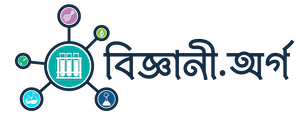
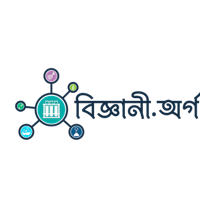
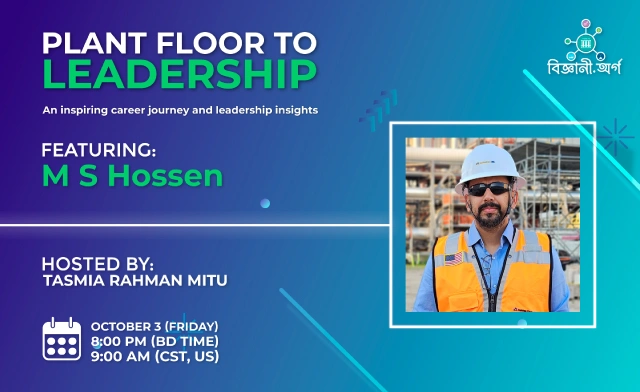



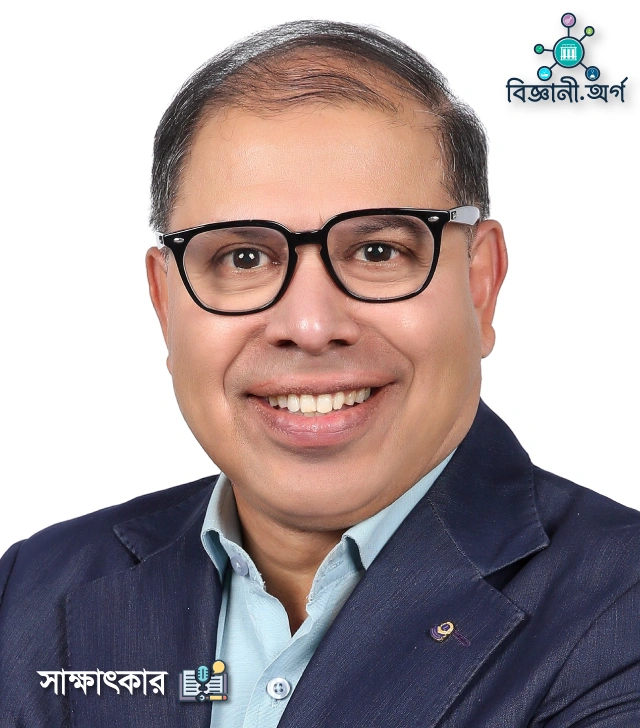
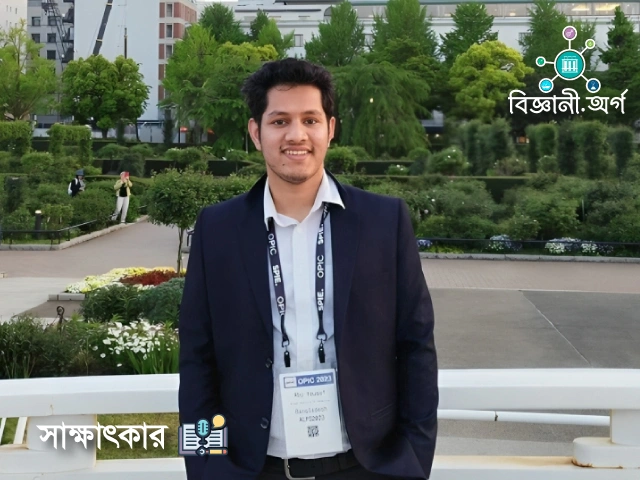
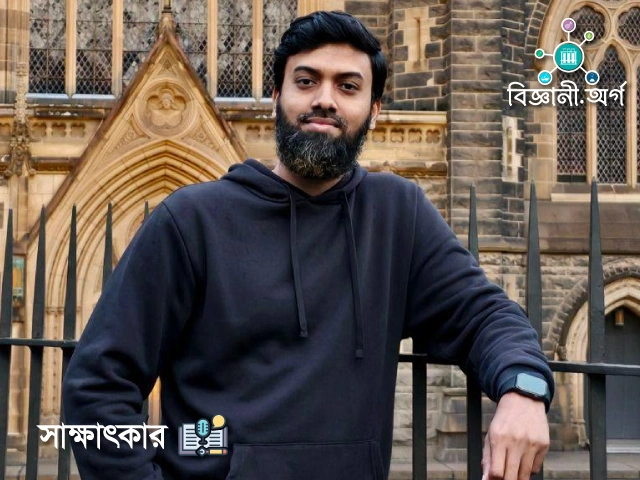
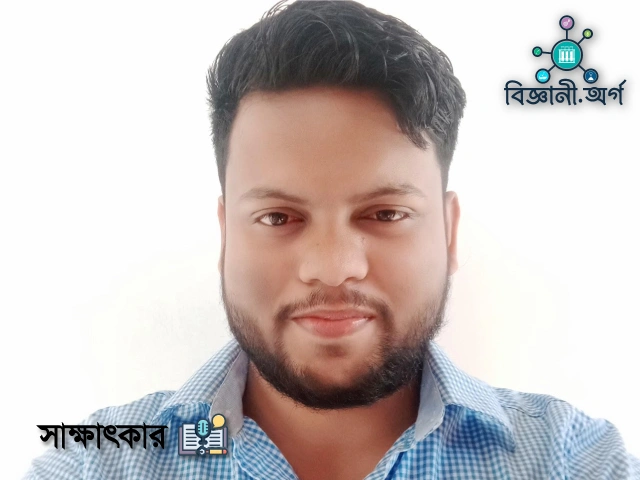
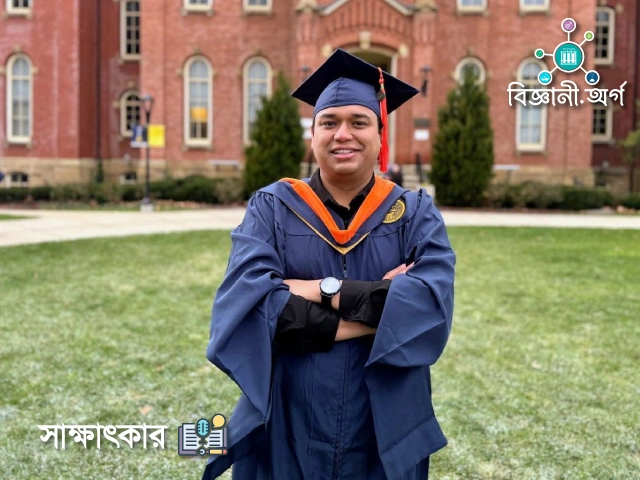
Leave a comment